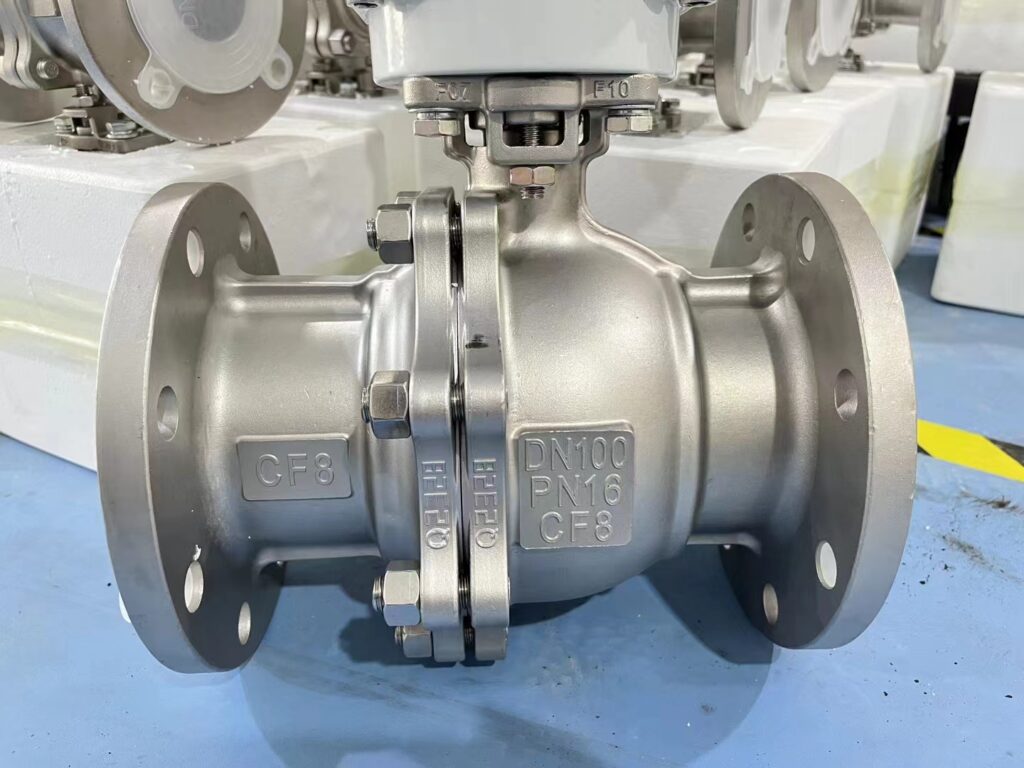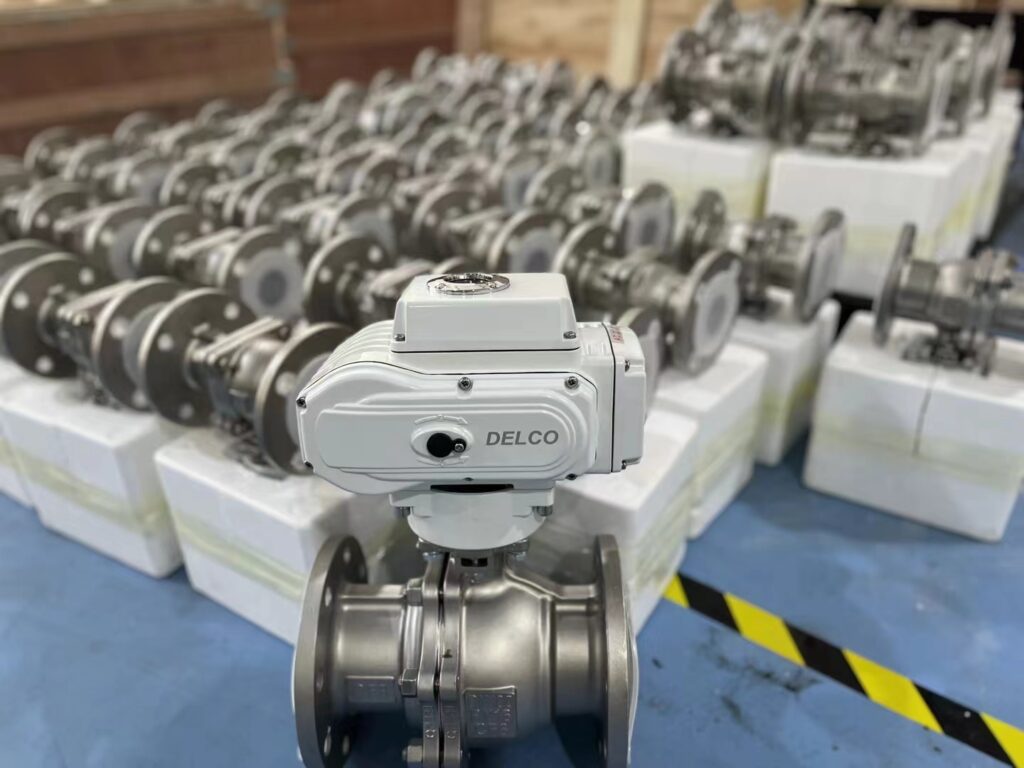Tech Theory: Technical…Practical… Interesting Automation Industrial Solutions

At DELCO, we understand the importance of customer satisfaction and strive to meet the unique needs of every client. As a reliable valve supplier, we are committed to providing excellent customer service and high-quality products to ensure optimal performance and longevity. By choosing DELCO as your trusted control air supplier, you can benefit from customized valve assemblies designed specifically to meet your requirements, enhancing efficiency and reducing downtime.
The Ultimate Guide to Ball Valves: A Consumer’s Perspective
Introduction
In the world of plumbing and fluid control systems, ball valves play a crucial role. They are widely used in residential, commercial, and industrial settings due to their durability, reliability, and ease of operation. Whether you’re a homeowner looking to upgrade your plumbing system, a business owner needing reliable control valves, or an industrial manager seeking robust solutions for your process systems, understanding ball valves is essential. This comprehensive guide will explore everything you need to know about ball valves from a consumer’s perspective.


What is a Ball Valve?
A ball valve is a type of quarter-turn valve that uses a hollow, perforated, and pivoting ball to control the flow of a fluid. When the ball’s hole is aligned with the flow inlet, the valve is open, allowing fluid to pass through. When the ball is rotated 90 degrees, the hole is perpendicular to the flow inlet, and the valve is closed, blocking the flow.
Key Components of a Ball Valve
- Valve Body: The main structure that houses the internal components.
- Ball: A spherical component with a hole through the middle.
- Seats: Seals that provide a tight fit around the ball to prevent leaks.
- Stem: Connects the ball to the external control mechanism.
- Handle or Actuator: Used to rotate the ball, controlling the valve’s open or closed position.
Types of Ball Valves
Ball valves come in various types, each suited for specific applications. Here are the most common types:
1. Floating Ball Valves
In floating ball valves, the ball is suspended in the fluid and held in place by two elastomeric seats. When the handle is turned, the ball is pushed against one of the seats, creating a seal.
Applications: Suitable for low to medium pressure systems, commonly used in water supply and HVAC systems.
2. Trunnion Mounted Ball Valves
In trunnion mounted ball valves, the ball is fixed in place by additional mechanical anchoring at the top and bottom. This design is ideal for high-pressure applications as it reduces the torque required to operate the valve.
Applications: Oil and gas industries, high-pressure hydraulic systems.
3. Full Port Ball Valves
Full port ball valves have a ball with a bore diameter equal to the pipeline diameter, ensuring no flow restriction.
Applications: Situations where maintaining flow rate is critical, such as in water treatment plants and chemical processing.
4. Reduced Port Ball Valves
Reduced port ball valves have a smaller bore diameter than the pipeline, causing a reduction in flow rate.
Applications: Applications where precise flow control is needed, commonly found in irrigation systems.
5. V-Port Ball Valves
V-port ball valves have a V-shaped notch in the ball or the seat, allowing for better flow control and throttling capabilities.
Applications: Industrial processes requiring precise flow regulation, such as in manufacturing and chemical processing.
Materials Used in Ball Valves
The materials used in ball valves can significantly affect their performance, durability, and suitability for different applications. Here are the common materials:
1. Stainless Steel
Stainless steel ball valves offer excellent corrosion resistance and durability, making them suitable for a wide range of applications, including food and beverage, pharmaceuticals, and corrosive environments.
2. Brass
Brass ball valves are commonly used in residential plumbing due to their good performance, affordability, and ease of installation. They are suitable for water, gas, and low-pressure air systems.
3. PVC (Polyvinyl Chloride)
PVC ball valves are lightweight, corrosion-resistant, and affordable. They are ideal for applications involving water and other non-corrosive fluids.
4. Carbon Steel
Carbon steel ball valves are strong and durable, suitable for high-pressure and high-temperature applications, such as in the oil and gas industry.
5. Bronze
Bronze ball valves offer good corrosion resistance and durability, commonly used in marine environments and applications involving water and non-corrosive fluids.
Advantages of Ball Valves
Ball valves offer several advantages that make them a popular choice in various applications:
1. Durability
Ball valves are known for their longevity and ability to withstand high pressure and temperatures, making them reliable in harsh environments.
2. Easy Operation
The quarter-turn operation makes ball valves easy to open and close, providing quick and effective flow control.
3. Tight Sealing
Ball valves provide a tight seal, reducing the risk of leaks and ensuring efficient fluid control.
4. Versatility
With various types and materials available, ball valves can be used in a wide range of applications, from residential plumbing to industrial processes.
5. Minimal Pressure Drop
Full port ball valves offer minimal flow restriction, ensuring efficient fluid movement through the system.
Disadvantages of Ball Valves
While ball valves offer many benefits, they also have some limitations:
1. Cost
High-quality ball valves, especially those made from stainless steel or designed for high-pressure applications, can be expensive.
2. Not Suitable for Throttling
Standard ball valves are not ideal for throttling applications as partial opening can cause wear and tear on the seats.
3. Size and Weight
Large ball valves can be bulky and heavy, requiring additional support and effort to install and operate.
How to Choose the Right Ball Valve
Selecting the right ball valve for your needs involves considering several factors:
1. Application
Identify the specific requirements of your application, including the type of fluid, pressure, temperature, and flow rate.
2. Material
Choose a material that offers the necessary durability and resistance to corrosion for your application.
3. Valve Type
Select the appropriate type of ball valve (e.g., floating, trunnion mounted, full port, reduced port) based on your operational needs.
4. Size
Ensure the valve size matches your pipeline diameter to maintain efficient flow and pressure.
5. Actuation
Decide whether you need a manually operated valve or an automated one with an actuator for remote control.
Installation and Maintenance
Proper installation and maintenance are critical to ensure the longevity and performance of ball valves:
Installation Tips
Maintenance Tips
- Regular Inspection: Periodically inspect the valve for signs of wear, corrosion, or leaks.
- Lubrication: Apply appropriate lubrication to the stem and seals to ensure smooth operation.
- Seal Replacement: Replace worn or damaged seals to maintain a tight seal and prevent leaks.
- Actuator Maintenance: If using an automated valve, regularly check the actuator for proper functioning.
Conclusion
Ball valves are indispensable components in fluid control systems, offering durability, ease of operation, and versatility. By understanding the different types, materials, and applications, consumers can make informed decisions when selecting ball valves for their specific needs. Proper installation and maintenance further ensure the longevity and reliable performance of these vital valves. Whether for residential, commercial, or industrial use, ball valves continue to be a preferred choice for efficient and effective fluid control.
Why more and more international valve brands choose DELCO for OEM service?
Founded in 2011, DELCO is a global leader in the industrial sector. Our main products include electric actuator valves, pneumatic actuator valves, automation actuators and solenoid valves. For nearly 20 years, we have utilized our products, engineering expertise and industrial automation solutions to solve countless industrial project problems for our customers, including food, beverage, chemical, water treatment, pharmaceutical, natural gas, oil and HVAC projects. We currently have five subsidiaries and more than 50 distributors around the world providing rapid response service.
All DELCO products undergo a 100% in-house design, engineering and manufacturing process led by highly skilled and experienced engineers using Italian and German technology to manufacture high quality, safe, reliable and value for money valves, actuators and solutions. Manufacturing standards can be demonstrated by the certifications obtained over the years.
And with the ISO 9001:2015 Quality Management System certification as well as many other certifications such as: SGS, RoHS, CNEX, TUV, CE, FDA. these certifications prove that DELCO adheres to the highest quality and safety standards worldwide when manufacturing its products.
How to get a quick quote for industrial valves?
If you have questions about valves or want to get a quote, please feel free to contact us, we will reply within 6 hours. Phone +86 159 8960 2972, WhatsApp +86 159 8960 2972 or email marketing [email protected].
DELCO’s quality, competitive prices and excellent service make it the best valve partner to help you grow your business. Customize your valves, we have no minimum order.
At DELCO, we understand the importance of customer satisfaction and strive to meet the unique needs of every client. As a reliable control valve supplier, we are committed to providing excellent customer service and high-quality products to ensure optimal performance and longevity. By choosing DELCO as your trusted control valve supplier, you can benefit from customized valve assemblies designed specifically to meet your requirements, enhancing efficiency and reducing downtime.
Furthermore, our competitive pricing on electronic pressure regulators enables you to offer top-notch solutions. As one of the leading control valve manufacturers, we take pride in delivering reliable valves that not only meet industry standards but also contribute to the overall profitability of your business. By partnering with DELCO, you can have peace of mind knowing that you are making a wise choice for the long-term success of your company.

